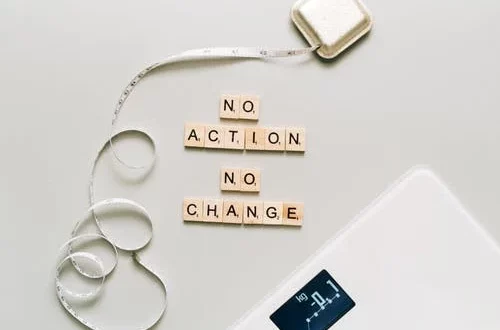
Create a Deliberate Positive Emotional State
“The way to overcome negative thoughts and destructive emotions is to develop opposing, positive emotions that are stronger and more powerful.”—Dalai Lama
You are in no way a slave to your negative emotions.
You can change them.
You can create a positive emotional state.
Tina’s Story:
Tina, a teacher, was raised by an alcoholic mother. For years Tina suffered from feelings of guilt and insecurity. Then she decided to come to grips with the problem.
What did she do?
“First, I worked to identify the thoughts that caused negative emotions. Whenever these thoughts would surface, I would rethink them rationally and objectively.
“Then, I would work on making positive thoughts flow.
“I force my mind to dwell on my students and how I can help them.
“Gradually, it became easier.”
But you may wonder: Why is it so hard to control our emotions?
Consider bad habits, such as overeating or smoking.
Are they easy to overcome?
Not at all!
It takes conscious, determined effort over time. For many, negative thinking is a habit; like other bad habits, it is hard to break.
If negative thinking is a habit for you, overcoming and controlling this thought pattern will require the same focus and determination as a person on a diet or who decides to quit smoking.
Do not give up!
Don’t remain angry or depressed because it is easier to do so. You must stick with your fight against negative thoughts, even if it requires many months of trial and error.
You will perhaps relapse. If so, stick with your plan and keep fighting.
Consider the long-term results.
Can Negative Emotions be Eliminated?
If you expect to achieve perfect happiness and contentment or positive emotions, you will only meet frustration and disappointment.
Happiness is relative. However, striving for it is better than being imprisoned in a life filled with persistent and debilitating negative emotions.
Some Positive Emotions Commonly Experienced, and Their Definitions Include:
- Joy: great pleasure and happiness.
- Hope: a feeling of expectation or desire for something to happen.
- Relief: feelings of reassurance and relaxation after anxiety or distress have been removed, as when your loved one has overcome their illness.
- Happiness: feeling or showing pleasure.
- Contentment: the feeling of being happy or satisfied.
- Optimism: hopefulness and confidence about the future.
- Inspiration. A person or thing that has filled you with the urge or ability to do or feel something you thought was not possible.
- Confidence: means self-assurance arising from one’s ability to achieve something.
- Affection: a fondness or liking toward or from another person; it can also come from a friend or a pet.
- Satisfaction: a sense of pleasure by doing or giving someone what they want and need.
- Pride: deep pleasure or satisfaction from achievement, qualities, or possessions.
- Enthusiasm: great enjoyment, interest, or approval.
- Gratitude: thankfulness or appreciation of kindness.
- Admiration: great approval or respect.
- Serenity: calmness and peacefulness.
- Cheerfulness: means a noticeably happy and optimistic feeling, indicating a bright and pleasant disposition.
- Love: the strongest of all positive emotions, indicating strong affection.
Tool: How You Can Create Positive Emotions
- Concentrate on positive things. Focus on qualities and virtues, such as faith, hope, love, trust, security, communication, positive stimuli in life, recreation, and the will to live and be healthy.
- Talk about positive things. Discuss encouraging experiences that help to keep one healthy, as pleasure can stimulate the immune system and strengthen the resistance to illness.
- Laugh. Researchers believe laughter may empower the immune system, underscoring the point in Proverbs 17:22, which states, “a heart that is joyful does good as curer.” Some hospitals have set up so-called “laughter rooms” where patients can play games, watch funny movies, and listen to jokes. Laughter can also mitigate anger.
- Seek the company of positive thinkers. Spend time with someone who knows you well and can remind you of your successes, encouraging you.
- Focus on helping others. If you have friends who feel depressed, ask what you can do to help them. Encourage others.
- Treat yourself compassionately. When feeling overwhelmed, sad, or having other negative emotions, force yourself to take a walk, call a friend, or listen to music to ease your negative feelings.
- Forgive. The perfect antidote to negative emotions caused by hurt feelings is forgiveness, as you replace negative feelings with positive ones.
Shelly’s Story:
“Mom is becoming increasingly incontinent. She hates being cleaned up and changed. She insists on keeping her soaked Depends diaper. She fights me tooth and nail when I try to help her. She screams, cries, and gets us both worked up beyond reason.
“I know this is due to the disease, but in the heat of the moment, I often find myself reacting out of frustration.
“Today, we started the same insane dance. Mom was crying for help, and I was trying to help her. She stayed in this loop, fighting me each step of the way.
“I found myself taking deep breaths, deciding to stop the struggle. I lifted Mom’s face in my hands until she could see me and look into my eyes. I held eye contact for a heartbeat and said calmly, ‘Mom, I am trying to help you. Do you want me to help you?
“Suddenly, all the anger and fear melted from her face. She said, ‘I love you.’ And just like that, the tantrum was over, and I managed to get her cleaned up and out of the bathroom.
“I hope I can do this again next time—and the time after that and so forth.
“We are growing tired of struggling with each other as we battle this horrific disease.
“Remember to breathe today.
“Remember the love you have—even when it seems so far away.”
Shelly’s story is an example of how love can help caregivers—and others—feel less anxious, calmer, and in control.
According to WebMD.com, there are nine health benefits of the positive emotion of love:
- Less depression.
- Less substance abuse.
- Lower blood pressure.
- Less anxiety.
- Natural pain control.
- Better stress management.
- Faster healing.
- Longer life.
- Happier life.
How to Find Happiness
One positive emotion we all strive for is happiness.
What does it mean to be happy?
According to Oxford English Dictionary, happiness means “feeling or showing pleasure.”
Some people find happiness by achieving one goal after another. They experience a feeling of “pleasure”; thus, they claim to be happy.
However, I enjoyed Dr. Wayne Dyer’s description of the pursuit of happiness as a journey in his book, Pulling Your Own Strings:
“Instead, wake up and appreciate everything you encounter along your path. Enjoy the flowers that are there for your pleasure. Tune in to the sunrise, the little children, the laughter, the rain, and the birds. Drink it all in rather than waiting to get to some always-future point where it will be all right for you to relax.
“Indeed, success—even life itself—is nothing more than moments to enjoy, one at a time.
“When you understand this principle, you will stop evaluating your happiness based on achievements and instead look upon the whole trip of life as something to be happy about.
“Or to sum it up, there is no way to happiness, because happiness is the way.”
What Causes You to Feel Happiness?
- Married family life
- Good health
- Satisfying career
- Friendships
- Taking vacations
- Lots of money
- Higher education/knowledge
- Helping others
- World peace
Now, think of some personal traits that could cloud your happiness.
Consider if the following applies to you personally:
- You are being apathetic. You have no interest or enthusiasm in anything in life. You are unmotivated.
- You are being healthy. According to Pew Research, most people who say their health is poor also say they are unhappy. Some health issues include smoking, lack of exercise, poor diet, and obesity.
- You feel stuck in the past. Life moves in only one direction.
- You feel hopeless. Life could be unraveling for you. You may think as if nothing is enough and that nothing makes a difference. You may even isolate yourself, refusing to spend time with friends. All of this adds to your unhappiness.
- You are ungrateful. We often need help understanding and valuing what we have. We no longer recognize the good that comes our way. We are closed off to others’ needs. Showing gratitude usually removes this feeling.
Many believe happiness is a choice that takes energy, discipline, and effort; you must pursue it.
Adults must make a conscious choice to be happy.
One Way to Experience More Happiness Right Now:
Smile! Laugh!
Have you ever had the experience of being near someone who burst out laughing?
I have.
What happened next? I started laughing, too! And I did this without knowing what caused the laughter—I couldn’t help myself.
Why?
You laugh because laughing is contagious.
Hearty, relaxed laughter can benefit you mentally, physically, and emotionally.
Research has shown that laughter is good for your physical health.
According to Psychology Today, laughter:
- Reduces levels of stress hormones, such as cortisol, epinephrine, and dopamine.
- Increases health-enhancing hormones, such as endorphins.
Regarding laughter, The Encyclopedia Britannica says, “One might call it a luxury reflex. Its only function seems to be to provide relief from tension… The explosive exhalations of laughter seem designed to ‘puff away’ surplus tension in a kind of respiratory gymnastics.”
I read an article claiming that little children laugh an average of four hundred times a day, whereas adults laugh only seven or eight times a day.
I have researched this claim and have yet to find any scientific evidence to support it; however, children do indeed laugh all day.
Children are joyful!
Even a smile can make a difference in experiencing positive feelings. It helps to put you in the right frame of mind, as positive thoughts make smiling easier.
A warm smile can alleviate tension and help us cope with our frustration.
Furthermore, what does a smile communicate to others?
Smiles demonstrate that we are at ease, open, and receptive—provided the smile is genuine.
Here Are Four Quick Tips to Laugh More
- Ask a preschooler (if you know one) to explain something.
- Spend time with funny people.
- Watch more comedy shows.
- Laugh at yourself.
I had a funny experience wherein I rolled my husband into the bathroom in his wheelchair and tried to help him sit on the toilet.
But he fell, and I fell right on top of him!
I didn’t hurt him, and we started laughing.
I tried to pull him up, and he kept saying, “I got this! I got this!”
Well, he didn’t.
We failed, and I had to call my son-in-law, who lived about ten minutes away, to help me pick my husband up off the floor.
But it felt good to laugh. We shared a bit of comic relief!
A Second Way to Enhance Your Happiness Right Now
Make others happy.
How?
Here are a few ideas:
- Hug someone.
- Tell someone they mean a lot to you.
- Pass on a book you enjoyed reading.
- Bake something for a neighbor.
- Donate your old things to charity.
- Apologize to someone you have offended.
- Buy an unexpected gift for someone.
- Read a story to a child.
- Get back in touch with someone with whom you have lost touch.
So, there you have it!
No, you are not a slave to your negative emotions.
Yes, you can create a positive emotional state.
Why not start today?
Key Takeaways
- Force negative thoughts out of your mind.
- Concentrate on positive things.
- Talk about positive things.
- Surround yourself with positive thinkers.
- Appreciate everything along our path to happiness
- Focus on helping others.
Remember, happiness is a choice you make.
Start now!
**** ****
Source for this article:
A Family Caregiver’s Guide: 7 Secrets to Convert Negative Triggers to Positive Emotions (2019)




